DeFiPP consolidates the research work carried out in three pre-existing centers, CRED, CEREFIM and CERPE, each of which represents one of the three main areas of research: development economics, public policy and regional economics and finance, and monetary economics. DeFiPP's main objective is to promote excellent research in economics and finance, with a high international profile, using economic methodology, both in theory and empirical research, which is the common link between the clusters. Cross-fertilization will take place through the joint sharing of new methods or approaches.
DeFiPP's main objective is to promote research excellence in economics and finance through leading theoretical and empirical scientific publications. To achieve this, the institute relies heavily on interactions between members of its three research centers and encourages the sharing of methods and approaches. DeFiPP also aims to develop national and international visibility by collaborating with researchers from numerous universities and countries. In this respect, the institute, along with several other Belgian universities (KULeuven, UCLouvain and Universiteit Antwerpen), is currently involved in the Excellence of Science (EOS) project, which focuses on developing knowledge on the consequences of globalization and market integration in developed and developing countries.
.Spotlight
News
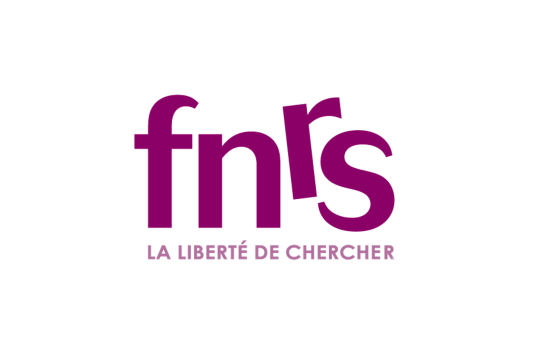
28 new research projects funded by the FNRS
28 new research projects funded by the FNRS
The F.R.S.-FNRS has just published the results of its various 2025 calls for proposals. These include the "Credits & Projects" and "WelCHANGE" calls, as well as the "FRIA" (Fund for Research Training in Industry and Agriculture) and "FRESH" (Fund for Research in the Humanities) calls, which aim to support doctoral theses. What are the results for UNamur? Twenty-eight projects have been selected, demonstrating the quality and richness of research at UNamur.
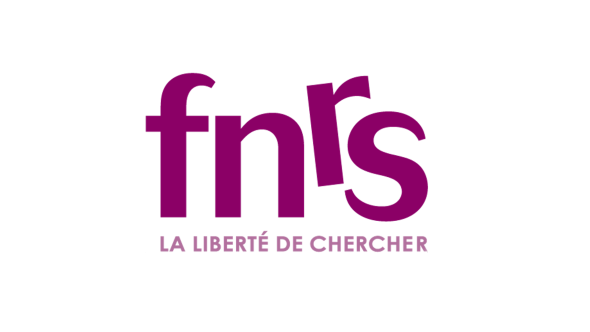
The "Credits & Projects" call for proposals resulted in 12 grants being awarded for ambitious new projects. These include two "equipment" grants, eight "research credits (CDR)" grants, and two "research projects (PDR)" grants, one of which is in collaboration with the ULB. The FRIA call for doctoral research support will fund eleven doctoral scholarships and the FRESH call will fund three.
Two prestigious Scientific Impulse Mandates (MIS) were also obtained. This three-year funding supports young permanent researchers who wish to develop an original and innovative research program by acquiring scientific autonomy within their department.
We would also like to highlight the two projects funded under the "WelCHANGE" call, a funding instrument for research projects with potential societal impact, led by a principal investigator in the humanities and social sciences.
Detailed results
Call for Equipment
- Xavier De Bolle, Narilis Institute, Co-promoter in collaboration with UCLouvain
- Luca Fusaro, NISM Institute
Call for Research Grants (CDR)
- Marc Hennequart, NARILIS Institute
- Nicolas Gillet, NARILIS Institute
- Jean-Yves Matroule, NARILIS Institute
- Patricia Renard, NARILIS Institute
- Francesco Renzi, NARILIS Institute
- Stéphane Vincent, NISM Institute
- Laurence Meurant, NaLTT Institute
- Emma-Louise Silva, NaLTT Institute
Call for Research Projects (PDR)
- Jérémy Dodeigne, Transitions Institute, Co-supervisor in collaboration with ULB
- Luc Henrard, NISM Institute; Co-supervisor: Yoann Olivier, NISM Institute
Fund for Training in Research in Industry and Agriculture (FRIA)
- Emma Bongiovanni - Supervisor: Catherine Michaux, NISM Institute
- Simon Chabot - Supervisor: Carine Michiels, Narilis Institute; Co-supervisor: Anne-Catherine Heuskin, Narilis Institute
- Lee Denis - Supervisor: Muriel Lepère, ILEE Institute
- Maé Desclez - Supervisor: Johan Yans, ILEE Institute; Co-supervisor: Hamed Pourkhorsandi (University of Toulouse)
- Pierre Lombard - Supervisor: Benoît Muylkens, Narilis Institute; Co-supervisor: Damien Coupeau, Narilis Institute
- Amandine Pecquet - Supervisor: Nicolas Gillet, Narilis Institute; Co-supervisor: Damien Coupeau, Narilis Institute
- Kilian Petit - Supervisor: Henri-François Renard, Narilis Institute; Co-supervisor: Xavier De Bolle, Narilis Institute
- Simon Rouxhet - Supervisor: Catherine Michaux, NISM Institute; Co-supervisor: Nicolas Gillet, Narilis Institute
- William Soulié - Supervisor: Yoann Olivier, NISM Institute
- Elisabeth Wanlin - Supervisor: Xavier De Bolle, Narilis Institute
- Laura Willam - Supervisor: Frédérik De Laender, ILEE Institute
Fund for Research in the Humanities (FRESH)
- Louis Droussin - Supervisor: Arthur Borriello, Transitions Institute; Co-supervisor: Vincent Jacquet, Transitions Institute
- Nicolas Larrea Avila - Supervisor: Guilhem Cassan, DeFIPP Institute
- Victor Sluyters – Supervisor: Wafa Hammedi, NADI Institute
- Amandine Leboutte - Co-supervisor: Erika Wauthia (UMons); Co-supervisor: Cédric Vanhoolandt, IRDENa Institute.
Scientific Impulse Mandate (MIS)
- Charlotte Beaudart, Narilis Institute
- Eli Thoré ILEE Institute
WelCHANGE Call
- Nathalie Burnay Transitions Institute, in collaboration with UCLouvain
- Catherine Guirkinger, DeFIPP Institute
Congratulations to all!
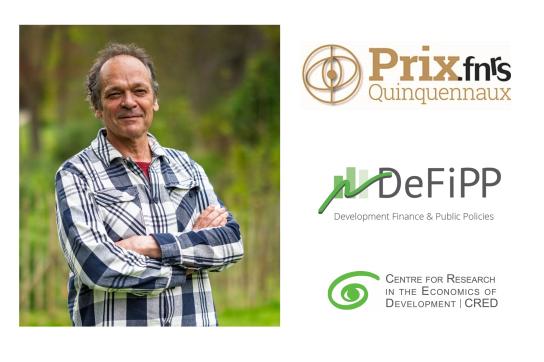
A prestigious FNRS prize in the social sciences for Professor Jean-Marie Baland
A prestigious FNRS prize in the social sciences for Professor Jean-Marie Baland
The FNRS has awarded the five-year Ernest-John Solvay Prize in the Social Sciences to Jean-Marie Baland, Professor in the Department of Economics at UNamur's EMCP Faculty and co-founder of the DeFiPP Institute's Centre de Recherche en Economie du Développement (CRED). A major accolade for a career devoted to the study of poverty, informal institutions and sustainable development.
.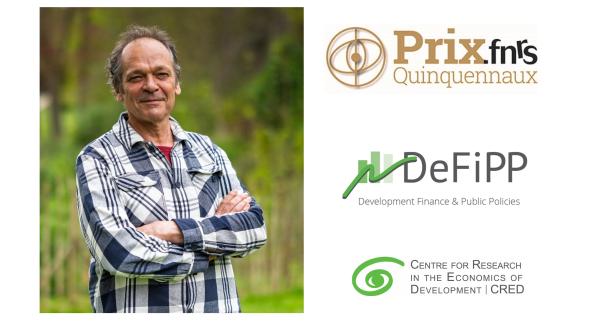
The five-year Ernest-John Solvay Prize, one of the FNRS's most prestigious honors, was awarded this November 24, 2025 to Jean-Marie Baland, professor in the Department of Economics at the University of Namur since 1991. The prize, awarded every five years, recognizes researchers whose work has marked their discipline by its originality and impact.
"Jean-Marie Baland combines theoretical rigor with field studies conducted in countries such as India, Nepal, Kenya and Chile. His research tackles key issues such as economic development, poverty reduction and environmental protection," emphasizes the FNRS jury.
Internationally recognized expertise
As a specialist in less developed countries, Jean-Marie Baland has devoted his work to the analysis of informal institutions, a subject for which he was awarded an ERC Advanced Grant in 2009. His research also explores the determinants of deforestation, the consequences of poverty, and more recently, the causes of infant mortality in South Asia, or domestic violence.
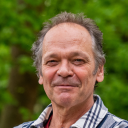
The central question of my research is to understand how groups organize themselves to manage decision-making. Who benefits? Who is harmed? What impact does it have? I've tackled this theme in a variety of ways, using a wide range of case studies. In Kenya, for example, I studied how a group of women in a shantytown organized themselves to build up collective savings to meet their needs. More recently, I've been studying how decision-making works within couples in Europe. Today, I'm working with my colleague Catherine Guirkinger (EMCP Faculty, Department of Economics) on the question of female emancipation and its impact on domestic violence: does it reduce or increase it, and if so, why? All these questions are analyzed using an interdisciplinary method, with approaches drawn from statistical, mathematical and economic models, and social science methods involving field surveys.
.
The desire to understand the world
What's always motivated him?
"The desire to understand the world. My motivation in my research has always been to produce knowledge before wanting it to have a societal impact. The usefulness of research is of course important, but personally it's not what drives me forward. Of course, the results of my research are regularly used to shape public policy, for example. But that's not an end in itself for my work as a researcher ", he stresses.
Jean-Marie Baland's academic career has been studded with prestigious distinctions: Chaire Francqui (2008), Distinguished Fellow Award at Harvard (2007), member of the Academia Europaea (2012)... So many accolades that testify to his scientific influence.
UNamur in the spotlight
But one of his proudest achievements is the creation of UNamur's Center for Research in Development Economics (CRED), founded with Professor Jean-Philippe Platteau. Jean-Marie Baland is a member of the Centre de recherchéche en économie du développement (CRED). A center now internationally recognized for its expertise in development economics, applied microeconomics and environmental economics, contributing to research with a strong societal impact. "The CRED today includes five academics and some fifteen researchers," says Jean-Marie Baland. The economist is also one of the founders of the Master of Specialization in Development Economics .
To the generation of future economists, Jean-Marie Baland addresses this wish:
"Interested in fields that make sense to you! And work as part of a team, even with people who think differently from you. For me, this experience of human interaction has been a very rich experience," he concludes.
A prestigious ceremony
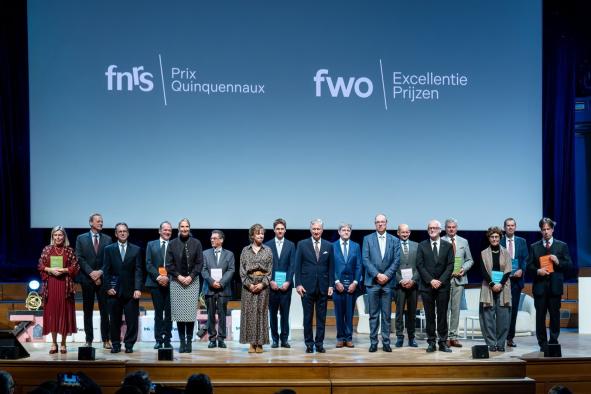
These prestigious prizes, awarded every five years by the FNRS, were presented this November 24, 2025 by King Philippe to one researcher and five researchers from the Wallonia-Brussels Federation. They confirm the international recognition and crown the exceptional careers of these scientists, in all disciplines. The Excellentieprijzen of the FWO, Flanders' equivalent of the FNRS, were also awarded on November 24 by His Majesty the King. At the ceremony, Véronique Halloin, Secretary General of the FNRS, congratulated the winners, thanking the 42 members of the international juries, as well as the sponsors who make these awards possible. She also spoke of "essential issues for scientific research and society as a whole", insisting on the need "to maintain the level of funding for fundamental research, to keep its full place for strategic research but also for the human and social sciences."
Press coverage
- Listen to the podcast produced by DailyScience featuring an interview with Jean-Marie Baland.
- Download the FNRS press release.

The Master's degree specializing in sustainable development management and economics: a program rooted in contemporary issues
The Master's degree specializing in sustainable development management and economics: a program rooted in contemporary issues
For more than 30 years, the Department of Flexible Scheduling at the Faculty of Economics, Management, Communication, and Political Science (EMCP) at the University of Namur has been helping adults returning to school to acquire new skills. In 2023, the Department launched a brand-new program: a Master's degree specializing in sustainable development management and economics. This one-year program addresses environmental and societal challenges by training professionals to support the ecological and economic transition.

This article is taken from the "Tomorrow Learn" section of the March 2025 issue of Omalius magazine.
The idea for such a program emerged four years ago. At the time, the context was marked by the deterioration of biodiversity and climate change. Jean-Yves Gnabo, professor at the EMCP Faculty, former director of the HD Department (2020-2023) and director of the program, explains: "We took the time to reflect on societal changes and the training needs they generate. It became clear that we needed to support the agents of change, whether they were from the public sector, the private sector, or self-employed. Our off-peak schedule allows us to reach them directly."
Designed to accommodate the constraints of adults returning to education, the program offers evening and Saturday morning classes, combining face-to-face and distance learning. The aim is to enable students to balance their professional and family lives with their studies. In addition, personalized support is provided in the form of practice sessions, individual coaching, and a dedicated academic coordinator. The program gives students the keys to understanding major developments in different areas of the economy, allowing them to adopt more informed and sustainable strategies.
Innovative teaching methods rooted in real-world experience
The Master's degree program stands out for its commitment to combining academic excellence with practical application. From the outset, the program's objective was clear. "We sought to strike a balance between academic rigor and the practical application of knowledge. Our lecturers come from both academia and the field, ensuring a multidimensional approach to the issues addressed," explains Jean-Yves Gnabo.
This commitment is reflected in particular by:
- Hybrid teaching.
- Flipped classrooms (practicing in class and studying at home) and real-life scenarios, encouraging active student involvement.
- A final thesis with original themes.
The thesis is the result of a symbiosis between the field and the academic world. Students can choose from different tracks. Professor Auguste Debroise, who supervises theses, explains: "Students have three options: a field thesis, a research thesis, or an entrepreneurial thesis. The first option involves companies, organizations, or public authorities identifying issues encountered in the field. Once the requests have been made, we submit them to the students, who choose one based on their interests. We believe that this is a great way to offer them direct field experience and access to real data, while addressing issues with more theoretical concepts and an analytical mindset. The second track is more scientific, with a traditional research focus. We therefore offer students who are more inclined towards a scientific approach the opportunity to write their thesis based on works on the subject. Finally, the third option is to give students with an entrepreneurial spirit the opportunity to develop their project or put it into practice if it is already well developed. In this way, they will compare their real-world project with academic tools to see what real needs it meets and to try to take a step back from their entrepreneurial project and thus develop critical and reflective thinking," explains Auguste Debroise.
Similarly, the "Ecological Transition" seminar is a concrete example of the program's approach. "This seminar is based on sharing experiences with high-level speakers. For example, we welcomed Catharina Sikow-Magny, former Director of Ecological Transition at the European Commission," shares Jean-Yves Gnabo. In addition, other enriching initiatives are held as part of the program. This is particularly the case with the "Cross Perspectives" seminar, which reflects a certain transdisciplinarity by exploring economic and environmental issues through the eyes of a sociologist, a philosopher, and a political scientist. Important courses such as "Fundamentals of Environmental Policy" and "Evaluation of Environmental Resources and Policies" are taught by Professor Ludovic Bequet, PhD in Economics.
Finally, the master's program is enriched by a collaboration with the Université du Littoral Côte d'Opale in Boulogne-sur-Mer, which has more than 20 years of experience in teaching economic and ecological transitions. "This partnership allows us to benefit from the expertise of this university, while offering our students a broader view of the issues at stake. We have set up a course-sharing system, where our students have access to targeted teaching provided by its experts, and vice versa," explains Jean-Yves Gnabo.
An evolving program to stay in step with tomorrow's challenges
In light of rapid developments in environmental and economic issues, the Master's program is supported by a monitoring committee comprising academics and practitioners. The role of this board is to constantly monitor developments and adjust the program in line with new issues. "We have put mechanisms in place to ensure that the program remains closely aligned with reality. In addition, the involvement of numerous experts from international organizations, businesses, and academia ensures that the approach is always relevant and up-to-date. We have around twenty speakers, with profiles ranging from Géraldine Thiry, Director of the National Bank of Belgium, to purely academic profiles," says Jean-Yves Gnabo.
With this new program, UNamur is laying the foundations for key training to meet contemporary challenges. The Master's degree in sustainable development management and economics is positioned as a springboard for its students to become agents of change, armed with solid tools and an informed vision of a world in transition. "This program is aimed at those who not only want to understand the challenges of our time, but above all want to respond to them in a concrete way. We train the actors of transition, giving them the means to decipher the changes at work and to act effectively within their organizations. Our challenge today is to gain greater visibility," concludes Jean-Yves Gnabo.
Did you know?
UNamur is internationally renowned in economics and management, particularly in the fields of sustainable development. The internationally recognized research institutes DeFIPP and Transitions study the impact of transition on nature and our societies, using an interdisciplinary approach.
Teaching, research and social facilities
Jean Lemaire's photographs also highlight the spaces that were made available to students and staff. Several shots show the appearance of the auditoriums of the time, already equipped with folding seats, and the practical rooms, such as the microscopy room (image 1) or the physics and chemistry laboratories. The stacks and consultation room of the Belles Lettres library, from which several readers can be seen (image 2), also come into view. Places devoted to moments of relaxation are not forgotten: several views thus immortalize the bar (image 3), the refectory, the billiard room or even the circle room.
This article is taken from the "Tomorrow Learn" section of Omalius magazine #36 (March 2025).
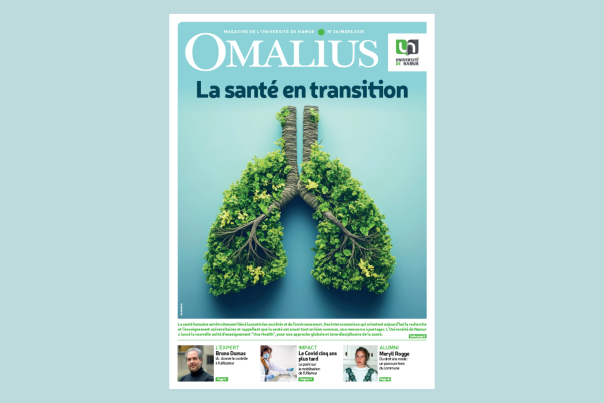
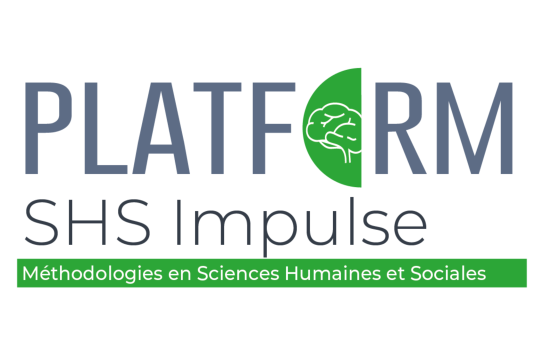
New impetus for the humanities and social sciences at UNamur
New impetus for the humanities and social sciences at UNamur
A new platform dedicated to research in the humanities and social sciences (SHS) is being launched at UNamur. The aim? To offer SHS researchers methodological support tailored to their needs and strengthen SHS excellence at UNamur. This platform, SHS Impulse, will provide various services such as financial support for training, consultancy, access to resources, or co-financed software purchases.
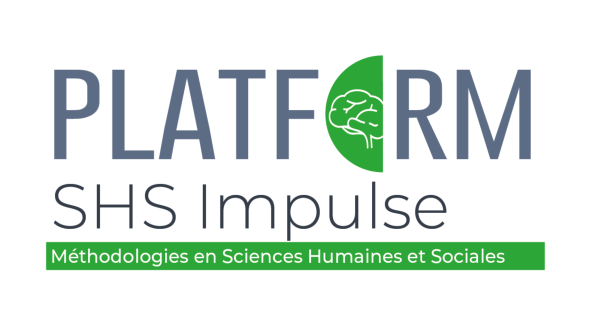
Whether it concerns linguistics, economics, politics, sustainable development, law, history, educational sciences, literature or translation, research in the humanities and social sciences is as eclectic as it is rich and essential for tackling society's challenges. Of UNamur's eleven research institutes, seven are directly involved in SHS research. While there is a high degree of complementarity in these areas of research, better pooling of resources, sharing and easier access to certain services, resources and support will help to sustain and strengthen the excellence of SHS research at UNamur. It is with this in mind that the SHS impulse platform has just been created.

We started from the needs of SHS researchers to establish four axes developed within this platform
.
Resources organized around 4 axes
- Axis 1 - Support for the acquisition of databases, documentary resources and software
- Axis 2 - Subsidy for cutting-edge training in the use of specialized methods
- Axis 3 - Funding access to the SMCS "Support en Méthodologie et Calcul Statistique" platform at UCLouvain, thanks to an inter-university partnership.
- Axis 4 - Setting up an SHS space, containing a laboratory for running experiments and shared work tools promoting exchanges between researchers.
Outlook
This initiative, launched in January 2025, addresses the specific challenges faced by SHS researchers. The long-term aim is to sustain and expand the services. "We will also hire a researcher expert in methodological analysis in SHS who will be able to inform innovative methodologies and frame the methodological design of research projects," emphasizes Sandrine Biémar, vice-dean of UNamur's Faculty of Education and Training Sciences, a member of the IRDENA institute and the SHS Impulse management committee. "The wish is also to support networking between SHS researchers at UNamur and to be a lever for setting up interdisciplinary projects," adds Sandrine Biémar.
The platform's management team is made up of representatives of the university's various SHS institutes, and ensures efficient management of resources. The platform's impact will be assessed during its initial phase (2025-2027), enabling strategies for its sustainability and development to be defined.

28 new research projects funded by the FNRS
28 new research projects funded by the FNRS
The F.R.S.-FNRS has just published the results of its various 2025 calls for proposals. These include the "Credits & Projects" and "WelCHANGE" calls, as well as the "FRIA" (Fund for Research Training in Industry and Agriculture) and "FRESH" (Fund for Research in the Humanities) calls, which aim to support doctoral theses. What are the results for UNamur? Twenty-eight projects have been selected, demonstrating the quality and richness of research at UNamur.

The "Credits & Projects" call for proposals resulted in 12 grants being awarded for ambitious new projects. These include two "equipment" grants, eight "research credits (CDR)" grants, and two "research projects (PDR)" grants, one of which is in collaboration with the ULB. The FRIA call for doctoral research support will fund eleven doctoral scholarships and the FRESH call will fund three.
Two prestigious Scientific Impulse Mandates (MIS) were also obtained. This three-year funding supports young permanent researchers who wish to develop an original and innovative research program by acquiring scientific autonomy within their department.
We would also like to highlight the two projects funded under the "WelCHANGE" call, a funding instrument for research projects with potential societal impact, led by a principal investigator in the humanities and social sciences.
Detailed results
Call for Equipment
- Xavier De Bolle, Narilis Institute, Co-promoter in collaboration with UCLouvain
- Luca Fusaro, NISM Institute
Call for Research Grants (CDR)
- Marc Hennequart, NARILIS Institute
- Nicolas Gillet, NARILIS Institute
- Jean-Yves Matroule, NARILIS Institute
- Patricia Renard, NARILIS Institute
- Francesco Renzi, NARILIS Institute
- Stéphane Vincent, NISM Institute
- Laurence Meurant, NaLTT Institute
- Emma-Louise Silva, NaLTT Institute
Call for Research Projects (PDR)
- Jérémy Dodeigne, Transitions Institute, Co-supervisor in collaboration with ULB
- Luc Henrard, NISM Institute; Co-supervisor: Yoann Olivier, NISM Institute
Fund for Training in Research in Industry and Agriculture (FRIA)
- Emma Bongiovanni - Supervisor: Catherine Michaux, NISM Institute
- Simon Chabot - Supervisor: Carine Michiels, Narilis Institute; Co-supervisor: Anne-Catherine Heuskin, Narilis Institute
- Lee Denis - Supervisor: Muriel Lepère, ILEE Institute
- Maé Desclez - Supervisor: Johan Yans, ILEE Institute; Co-supervisor: Hamed Pourkhorsandi (University of Toulouse)
- Pierre Lombard - Supervisor: Benoît Muylkens, Narilis Institute; Co-supervisor: Damien Coupeau, Narilis Institute
- Amandine Pecquet - Supervisor: Nicolas Gillet, Narilis Institute; Co-supervisor: Damien Coupeau, Narilis Institute
- Kilian Petit - Supervisor: Henri-François Renard, Narilis Institute; Co-supervisor: Xavier De Bolle, Narilis Institute
- Simon Rouxhet - Supervisor: Catherine Michaux, NISM Institute; Co-supervisor: Nicolas Gillet, Narilis Institute
- William Soulié - Supervisor: Yoann Olivier, NISM Institute
- Elisabeth Wanlin - Supervisor: Xavier De Bolle, Narilis Institute
- Laura Willam - Supervisor: Frédérik De Laender, ILEE Institute
Fund for Research in the Humanities (FRESH)
- Louis Droussin - Supervisor: Arthur Borriello, Transitions Institute; Co-supervisor: Vincent Jacquet, Transitions Institute
- Nicolas Larrea Avila - Supervisor: Guilhem Cassan, DeFIPP Institute
- Victor Sluyters – Supervisor: Wafa Hammedi, NADI Institute
- Amandine Leboutte - Co-supervisor: Erika Wauthia (UMons); Co-supervisor: Cédric Vanhoolandt, IRDENa Institute.
Scientific Impulse Mandate (MIS)
- Charlotte Beaudart, Narilis Institute
- Eli Thoré ILEE Institute
WelCHANGE Call
- Nathalie Burnay Transitions Institute, in collaboration with UCLouvain
- Catherine Guirkinger, DeFIPP Institute
Congratulations to all!

A prestigious FNRS prize in the social sciences for Professor Jean-Marie Baland
A prestigious FNRS prize in the social sciences for Professor Jean-Marie Baland
The FNRS has awarded the five-year Ernest-John Solvay Prize in the Social Sciences to Jean-Marie Baland, Professor in the Department of Economics at UNamur's EMCP Faculty and co-founder of the DeFiPP Institute's Centre de Recherche en Economie du Développement (CRED). A major accolade for a career devoted to the study of poverty, informal institutions and sustainable development.
.
The five-year Ernest-John Solvay Prize, one of the FNRS's most prestigious honors, was awarded this November 24, 2025 to Jean-Marie Baland, professor in the Department of Economics at the University of Namur since 1991. The prize, awarded every five years, recognizes researchers whose work has marked their discipline by its originality and impact.
"Jean-Marie Baland combines theoretical rigor with field studies conducted in countries such as India, Nepal, Kenya and Chile. His research tackles key issues such as economic development, poverty reduction and environmental protection," emphasizes the FNRS jury.
Internationally recognized expertise
As a specialist in less developed countries, Jean-Marie Baland has devoted his work to the analysis of informal institutions, a subject for which he was awarded an ERC Advanced Grant in 2009. His research also explores the determinants of deforestation, the consequences of poverty, and more recently, the causes of infant mortality in South Asia, or domestic violence.

The central question of my research is to understand how groups organize themselves to manage decision-making. Who benefits? Who is harmed? What impact does it have? I've tackled this theme in a variety of ways, using a wide range of case studies. In Kenya, for example, I studied how a group of women in a shantytown organized themselves to build up collective savings to meet their needs. More recently, I've been studying how decision-making works within couples in Europe. Today, I'm working with my colleague Catherine Guirkinger (EMCP Faculty, Department of Economics) on the question of female emancipation and its impact on domestic violence: does it reduce or increase it, and if so, why? All these questions are analyzed using an interdisciplinary method, with approaches drawn from statistical, mathematical and economic models, and social science methods involving field surveys.
.
The desire to understand the world
What's always motivated him?
"The desire to understand the world. My motivation in my research has always been to produce knowledge before wanting it to have a societal impact. The usefulness of research is of course important, but personally it's not what drives me forward. Of course, the results of my research are regularly used to shape public policy, for example. But that's not an end in itself for my work as a researcher ", he stresses.
Jean-Marie Baland's academic career has been studded with prestigious distinctions: Chaire Francqui (2008), Distinguished Fellow Award at Harvard (2007), member of the Academia Europaea (2012)... So many accolades that testify to his scientific influence.
UNamur in the spotlight
But one of his proudest achievements is the creation of UNamur's Center for Research in Development Economics (CRED), founded with Professor Jean-Philippe Platteau. Jean-Marie Baland is a member of the Centre de recherchéche en économie du développement (CRED). A center now internationally recognized for its expertise in development economics, applied microeconomics and environmental economics, contributing to research with a strong societal impact. "The CRED today includes five academics and some fifteen researchers," says Jean-Marie Baland. The economist is also one of the founders of the Master of Specialization in Development Economics .
To the generation of future economists, Jean-Marie Baland addresses this wish:
"Interested in fields that make sense to you! And work as part of a team, even with people who think differently from you. For me, this experience of human interaction has been a very rich experience," he concludes.
A prestigious ceremony

These prestigious prizes, awarded every five years by the FNRS, were presented this November 24, 2025 by King Philippe to one researcher and five researchers from the Wallonia-Brussels Federation. They confirm the international recognition and crown the exceptional careers of these scientists, in all disciplines. The Excellentieprijzen of the FWO, Flanders' equivalent of the FNRS, were also awarded on November 24 by His Majesty the King. At the ceremony, Véronique Halloin, Secretary General of the FNRS, congratulated the winners, thanking the 42 members of the international juries, as well as the sponsors who make these awards possible. She also spoke of "essential issues for scientific research and society as a whole", insisting on the need "to maintain the level of funding for fundamental research, to keep its full place for strategic research but also for the human and social sciences."
Press coverage
- Listen to the podcast produced by DailyScience featuring an interview with Jean-Marie Baland.
- Download the FNRS press release.

The Master's degree specializing in sustainable development management and economics: a program rooted in contemporary issues
The Master's degree specializing in sustainable development management and economics: a program rooted in contemporary issues
For more than 30 years, the Department of Flexible Scheduling at the Faculty of Economics, Management, Communication, and Political Science (EMCP) at the University of Namur has been helping adults returning to school to acquire new skills. In 2023, the Department launched a brand-new program: a Master's degree specializing in sustainable development management and economics. This one-year program addresses environmental and societal challenges by training professionals to support the ecological and economic transition.

This article is taken from the "Tomorrow Learn" section of the March 2025 issue of Omalius magazine.
The idea for such a program emerged four years ago. At the time, the context was marked by the deterioration of biodiversity and climate change. Jean-Yves Gnabo, professor at the EMCP Faculty, former director of the HD Department (2020-2023) and director of the program, explains: "We took the time to reflect on societal changes and the training needs they generate. It became clear that we needed to support the agents of change, whether they were from the public sector, the private sector, or self-employed. Our off-peak schedule allows us to reach them directly."
Designed to accommodate the constraints of adults returning to education, the program offers evening and Saturday morning classes, combining face-to-face and distance learning. The aim is to enable students to balance their professional and family lives with their studies. In addition, personalized support is provided in the form of practice sessions, individual coaching, and a dedicated academic coordinator. The program gives students the keys to understanding major developments in different areas of the economy, allowing them to adopt more informed and sustainable strategies.
Innovative teaching methods rooted in real-world experience
The Master's degree program stands out for its commitment to combining academic excellence with practical application. From the outset, the program's objective was clear. "We sought to strike a balance between academic rigor and the practical application of knowledge. Our lecturers come from both academia and the field, ensuring a multidimensional approach to the issues addressed," explains Jean-Yves Gnabo.
This commitment is reflected in particular by:
- Hybrid teaching.
- Flipped classrooms (practicing in class and studying at home) and real-life scenarios, encouraging active student involvement.
- A final thesis with original themes.
The thesis is the result of a symbiosis between the field and the academic world. Students can choose from different tracks. Professor Auguste Debroise, who supervises theses, explains: "Students have three options: a field thesis, a research thesis, or an entrepreneurial thesis. The first option involves companies, organizations, or public authorities identifying issues encountered in the field. Once the requests have been made, we submit them to the students, who choose one based on their interests. We believe that this is a great way to offer them direct field experience and access to real data, while addressing issues with more theoretical concepts and an analytical mindset. The second track is more scientific, with a traditional research focus. We therefore offer students who are more inclined towards a scientific approach the opportunity to write their thesis based on works on the subject. Finally, the third option is to give students with an entrepreneurial spirit the opportunity to develop their project or put it into practice if it is already well developed. In this way, they will compare their real-world project with academic tools to see what real needs it meets and to try to take a step back from their entrepreneurial project and thus develop critical and reflective thinking," explains Auguste Debroise.
Similarly, the "Ecological Transition" seminar is a concrete example of the program's approach. "This seminar is based on sharing experiences with high-level speakers. For example, we welcomed Catharina Sikow-Magny, former Director of Ecological Transition at the European Commission," shares Jean-Yves Gnabo. In addition, other enriching initiatives are held as part of the program. This is particularly the case with the "Cross Perspectives" seminar, which reflects a certain transdisciplinarity by exploring economic and environmental issues through the eyes of a sociologist, a philosopher, and a political scientist. Important courses such as "Fundamentals of Environmental Policy" and "Evaluation of Environmental Resources and Policies" are taught by Professor Ludovic Bequet, PhD in Economics.
Finally, the master's program is enriched by a collaboration with the Université du Littoral Côte d'Opale in Boulogne-sur-Mer, which has more than 20 years of experience in teaching economic and ecological transitions. "This partnership allows us to benefit from the expertise of this university, while offering our students a broader view of the issues at stake. We have set up a course-sharing system, where our students have access to targeted teaching provided by its experts, and vice versa," explains Jean-Yves Gnabo.
An evolving program to stay in step with tomorrow's challenges
In light of rapid developments in environmental and economic issues, the Master's program is supported by a monitoring committee comprising academics and practitioners. The role of this board is to constantly monitor developments and adjust the program in line with new issues. "We have put mechanisms in place to ensure that the program remains closely aligned with reality. In addition, the involvement of numerous experts from international organizations, businesses, and academia ensures that the approach is always relevant and up-to-date. We have around twenty speakers, with profiles ranging from Géraldine Thiry, Director of the National Bank of Belgium, to purely academic profiles," says Jean-Yves Gnabo.
With this new program, UNamur is laying the foundations for key training to meet contemporary challenges. The Master's degree in sustainable development management and economics is positioned as a springboard for its students to become agents of change, armed with solid tools and an informed vision of a world in transition. "This program is aimed at those who not only want to understand the challenges of our time, but above all want to respond to them in a concrete way. We train the actors of transition, giving them the means to decipher the changes at work and to act effectively within their organizations. Our challenge today is to gain greater visibility," concludes Jean-Yves Gnabo.
Did you know?
UNamur is internationally renowned in economics and management, particularly in the fields of sustainable development. The internationally recognized research institutes DeFIPP and Transitions study the impact of transition on nature and our societies, using an interdisciplinary approach.
Teaching, research and social facilities
Jean Lemaire's photographs also highlight the spaces that were made available to students and staff. Several shots show the appearance of the auditoriums of the time, already equipped with folding seats, and the practical rooms, such as the microscopy room (image 1) or the physics and chemistry laboratories. The stacks and consultation room of the Belles Lettres library, from which several readers can be seen (image 2), also come into view. Places devoted to moments of relaxation are not forgotten: several views thus immortalize the bar (image 3), the refectory, the billiard room or even the circle room.
This article is taken from the "Tomorrow Learn" section of Omalius magazine #36 (March 2025).


New impetus for the humanities and social sciences at UNamur
New impetus for the humanities and social sciences at UNamur
A new platform dedicated to research in the humanities and social sciences (SHS) is being launched at UNamur. The aim? To offer SHS researchers methodological support tailored to their needs and strengthen SHS excellence at UNamur. This platform, SHS Impulse, will provide various services such as financial support for training, consultancy, access to resources, or co-financed software purchases.

Whether it concerns linguistics, economics, politics, sustainable development, law, history, educational sciences, literature or translation, research in the humanities and social sciences is as eclectic as it is rich and essential for tackling society's challenges. Of UNamur's eleven research institutes, seven are directly involved in SHS research. While there is a high degree of complementarity in these areas of research, better pooling of resources, sharing and easier access to certain services, resources and support will help to sustain and strengthen the excellence of SHS research at UNamur. It is with this in mind that the SHS impulse platform has just been created.

We started from the needs of SHS researchers to establish four axes developed within this platform
.
Resources organized around 4 axes
- Axis 1 - Support for the acquisition of databases, documentary resources and software
- Axis 2 - Subsidy for cutting-edge training in the use of specialized methods
- Axis 3 - Funding access to the SMCS "Support en Méthodologie et Calcul Statistique" platform at UCLouvain, thanks to an inter-university partnership.
- Axis 4 - Setting up an SHS space, containing a laboratory for running experiments and shared work tools promoting exchanges between researchers.
Outlook
This initiative, launched in January 2025, addresses the specific challenges faced by SHS researchers. The long-term aim is to sustain and expand the services. "We will also hire a researcher expert in methodological analysis in SHS who will be able to inform innovative methodologies and frame the methodological design of research projects," emphasizes Sandrine Biémar, vice-dean of UNamur's Faculty of Education and Training Sciences, a member of the IRDENA institute and the SHS Impulse management committee. "The wish is also to support networking between SHS researchers at UNamur and to be a lever for setting up interdisciplinary projects," adds Sandrine Biémar.
The platform's management team is made up of representatives of the university's various SHS institutes, and ensures efficient management of resources. The platform's impact will be assessed during its initial phase (2025-2027), enabling strategies for its sustainability and development to be defined.
Agenda
Methods" seminar | Computational approaches to meaning change
"Methods" is a series of seminars organized by the Institut Transitions at the University of Namur with the aim of fostering interdisciplinary collaboration and knowledge exchange. All seminars take place in a hybrid format.
Orator: Barbara McGilivray - Senior Lecturer in Digital and Computational Humanities at King's College London
Semantic change, i.e. the evolution of word meanings over time, offers crucial information about historical, cultural and linguistic processes. Language acts as a mirror of societal change, reflecting evolving values, norms and technological advances. Understanding how the meaning of words evolves enables us to trace these transformations and gain a deeper understanding of our distant and recent past.
This seminar explores how computational methods are revolutionizing our ability to analyze semantic change in historical texts, addressing a major challenge in the field of digital humanities. While advanced computational methods enable us to analyze vast datasets and uncover previously inaccessible patterns, few natural language processing algorithms fully take into account the dynamic nature of language, particularly semantics, which is essential for research in the humanities. As AI systems develop to better understand the historical context and dynamics of language, human annotation and interpretation remain essential to capture the nuances of language and its cultural context.
In this presentation, I will show how computational and human-centered approaches can be effectively combined to examine semantic change and its links to cultural and technological developments. I will present examples illustrating how semantic change can be analyzed across temporal, cultural and textual dimensions.
"Methods "seminars
The Methods Seminar is a series of seminars organized at the University of Namur with the aim of fostering interdisciplinary collaboration and knowledge exchange. All seminars take place in a hybrid format.
This seminar series focuses on advanced methodological approaches, particularly in the fields of natural language processing (NLP), artificial intelligence (AI), video and image analysis, and multimodal analysis.
To stay informed about details of upcoming seminars, please subscribe to our mailing list below.
DeFiPP's strengths
- The integration of different but related areas of research and approaches in both economics and finance.
- The importance of the institute's three research centers. In particular, the CRED is considered a leading center in development economics in Europe, and is notably supported by the European Union through the European Research Council (ERC) Starting Grant. The CERPE is known for its advisory role in Belgian public policy. As for the CeReFiM, it has recently collaborated with private sector organizations as part of the Ageas and BNP Paribas Fortis research chairs devoted to systemic and asset risk management.
- The organization of various research activities that bring together members of the various research centers. These activities fall into two categories: DeFiPP activities, (e.g. DeFiPP's weekly economics seminars and workshops) and activities co-organized with other universities (e.g. the doctoral workshop co-organized twice a year with UCLouvain and Université Saint-Louis).
- The participation of DeFiPP's three research centers in a joint doctoral school with other Belgian universities, enabling DeFiPP members to follow high-quality doctoral courses.




